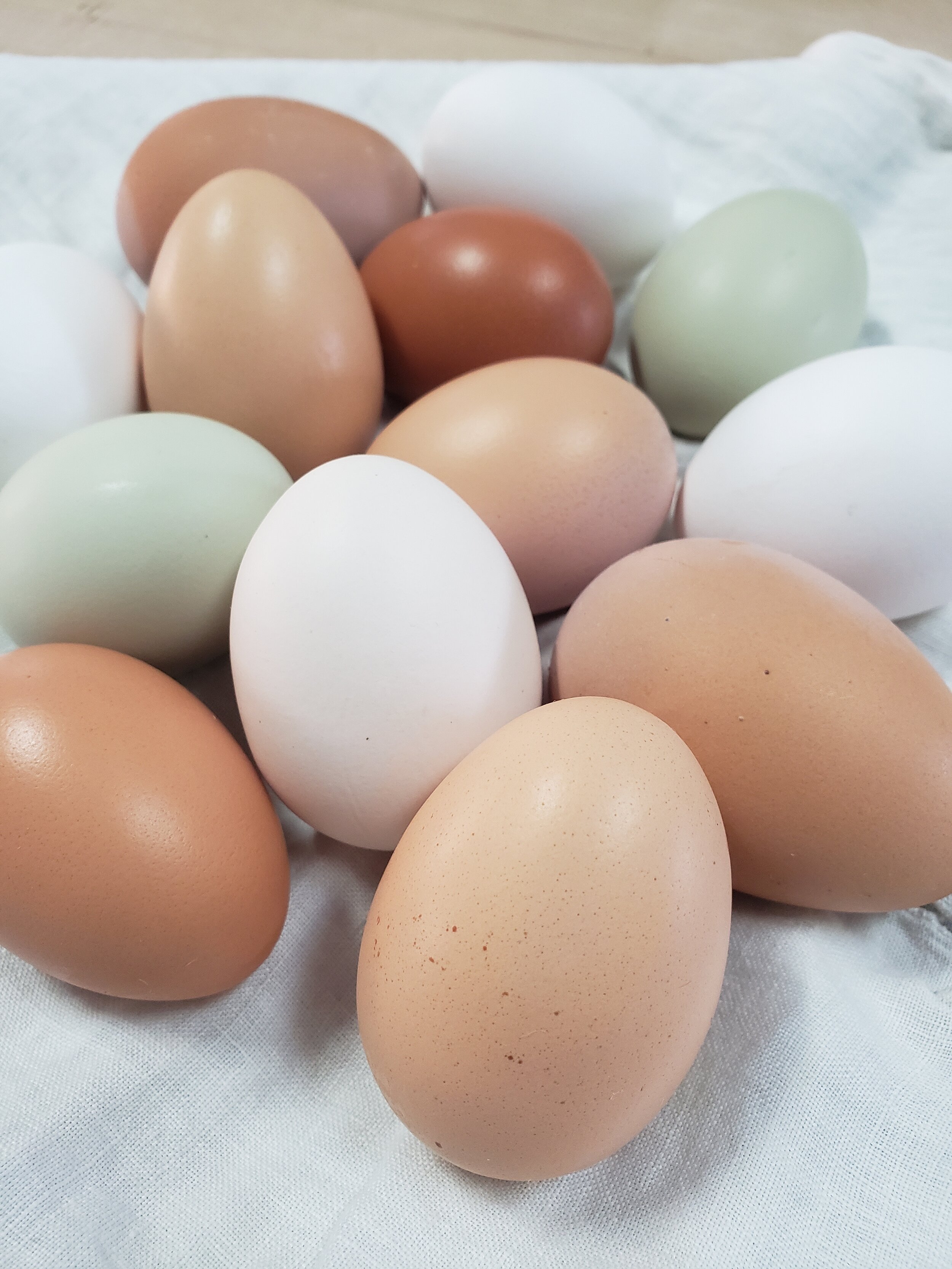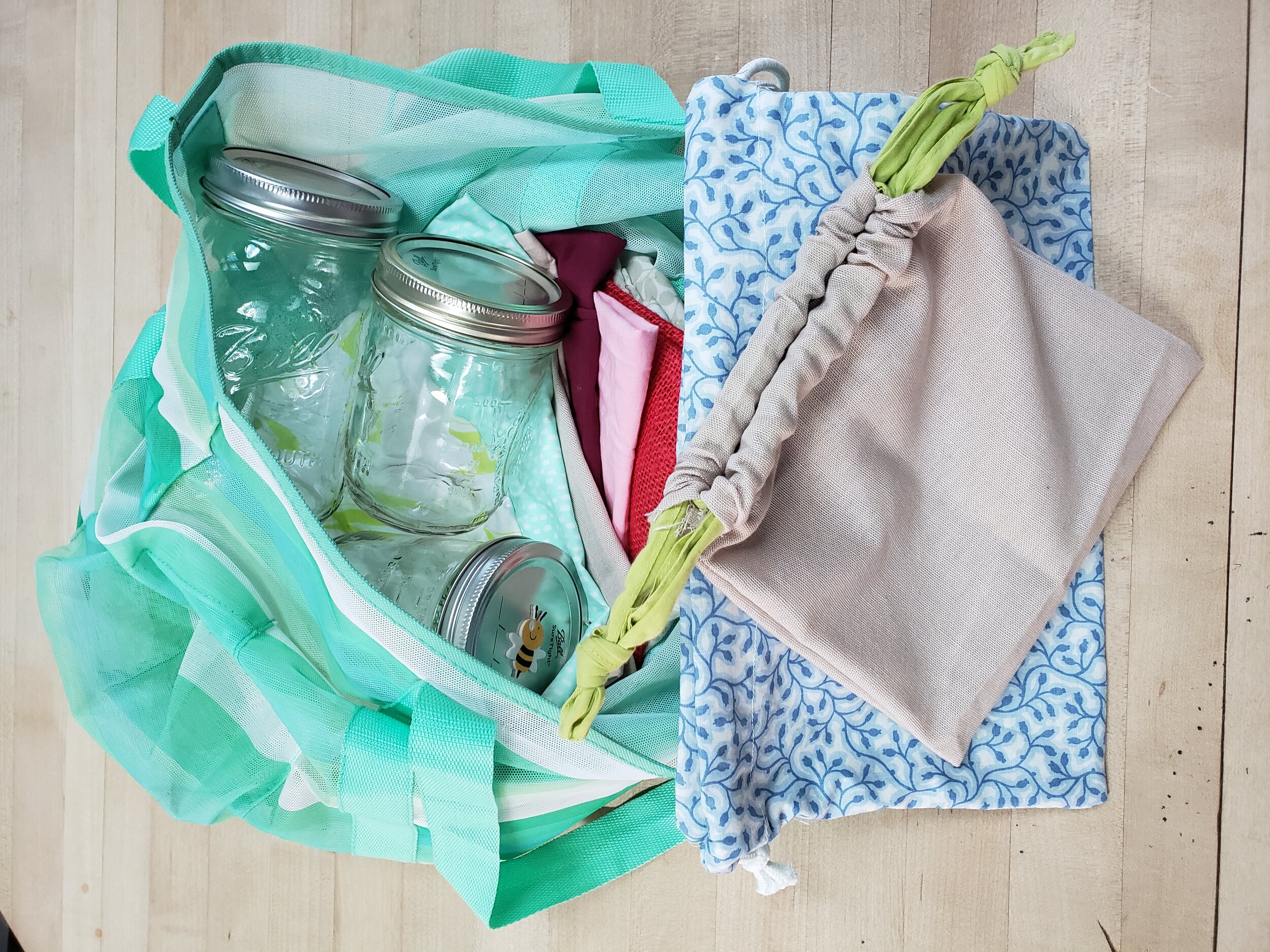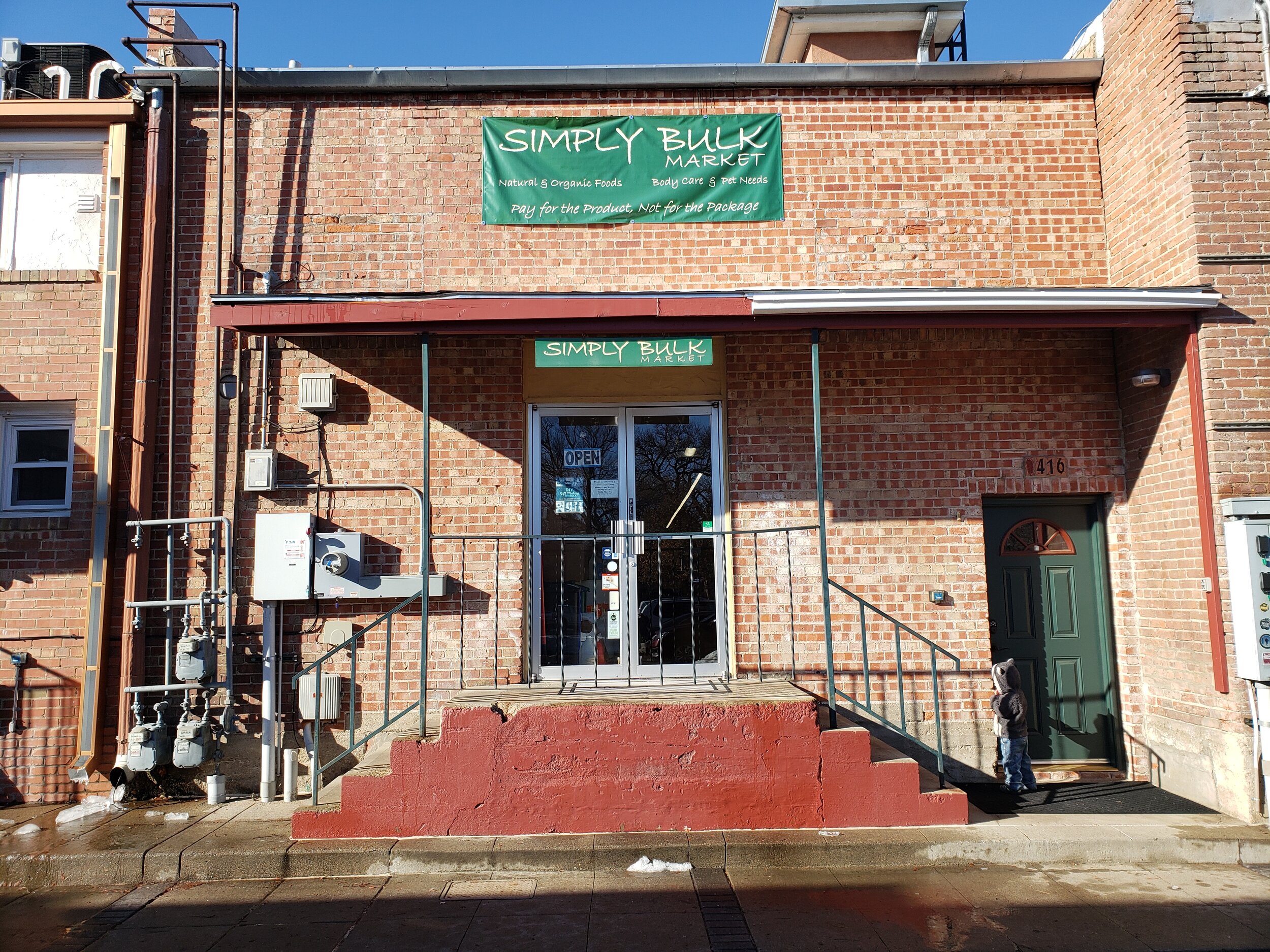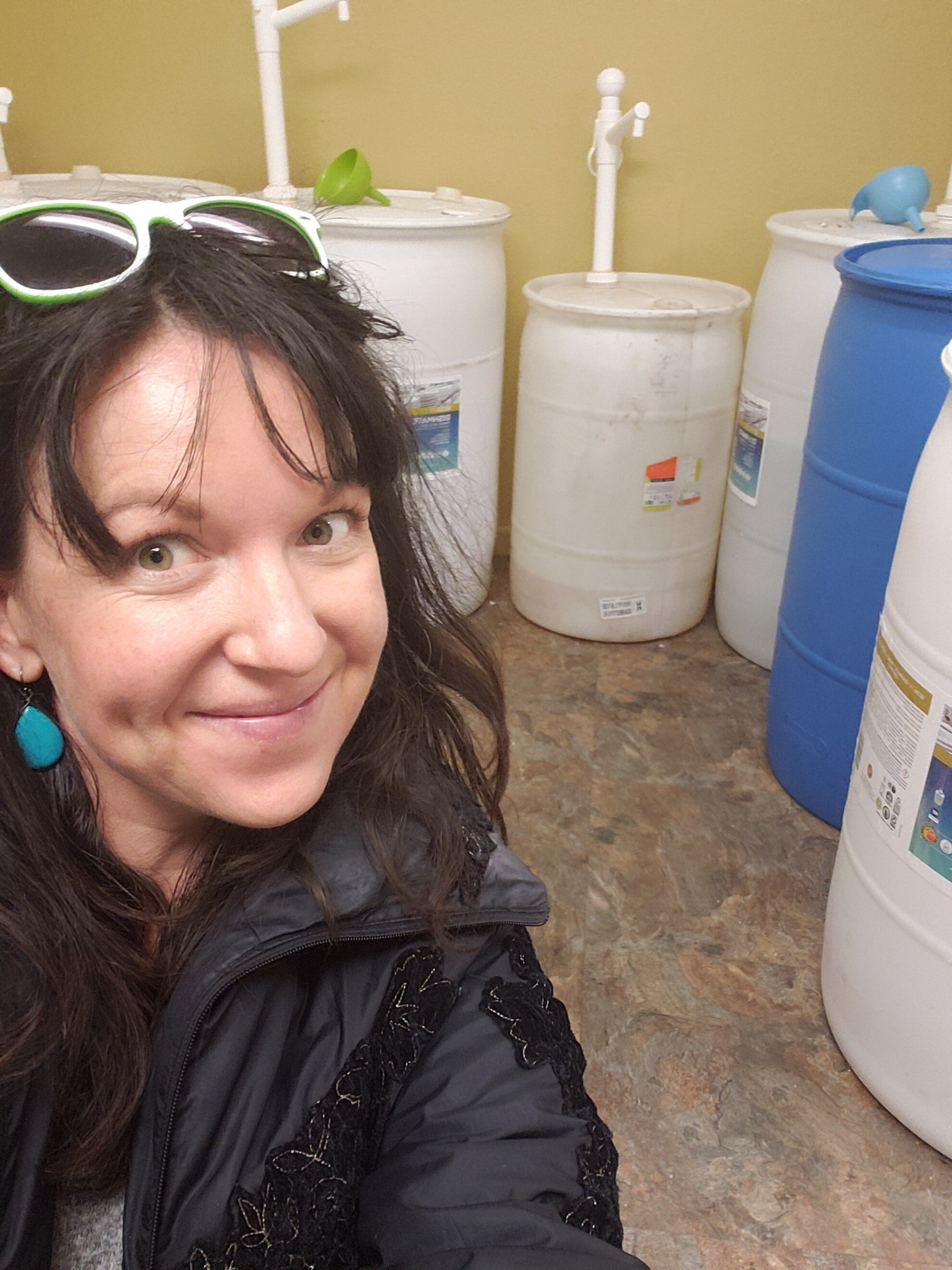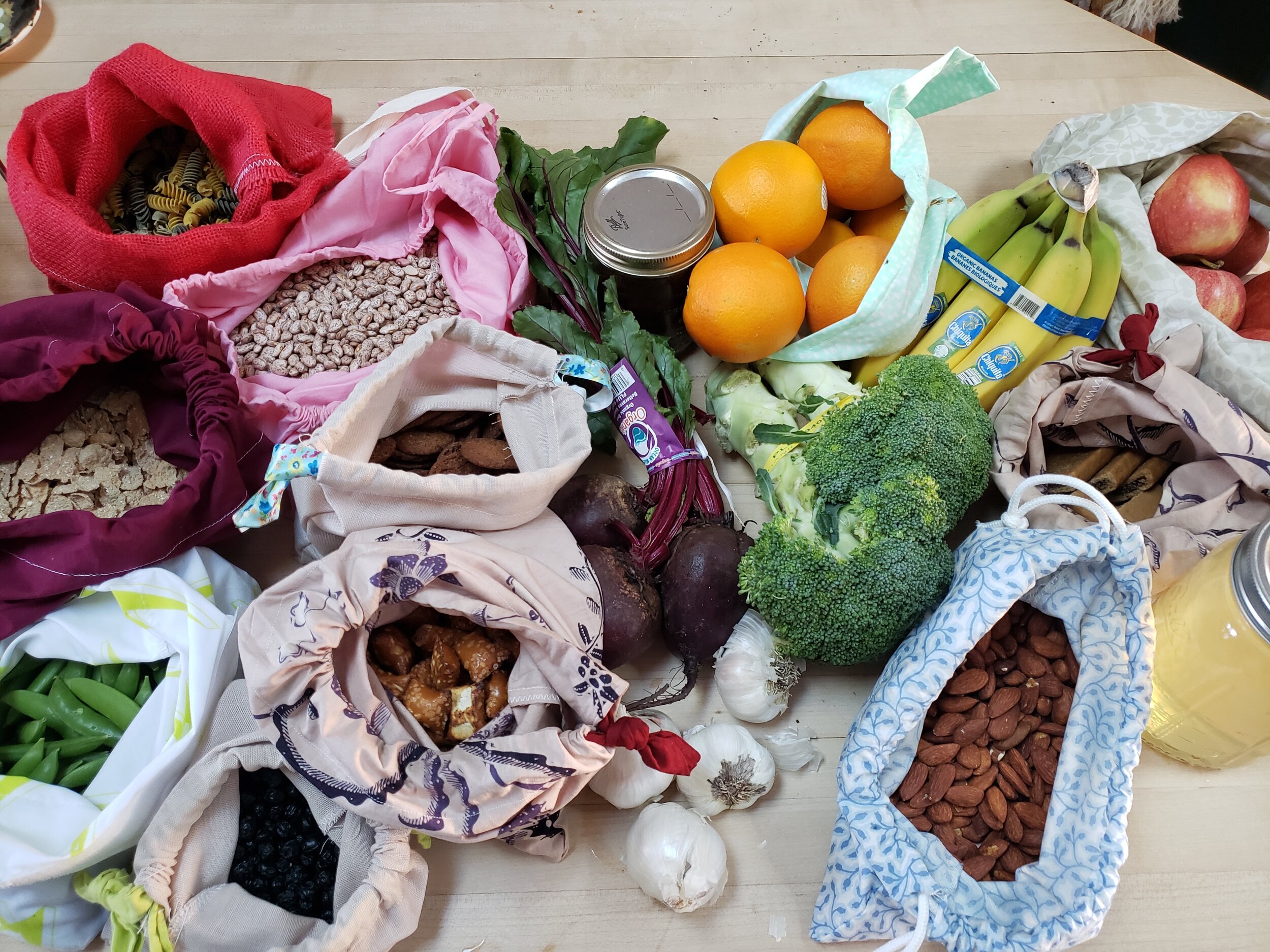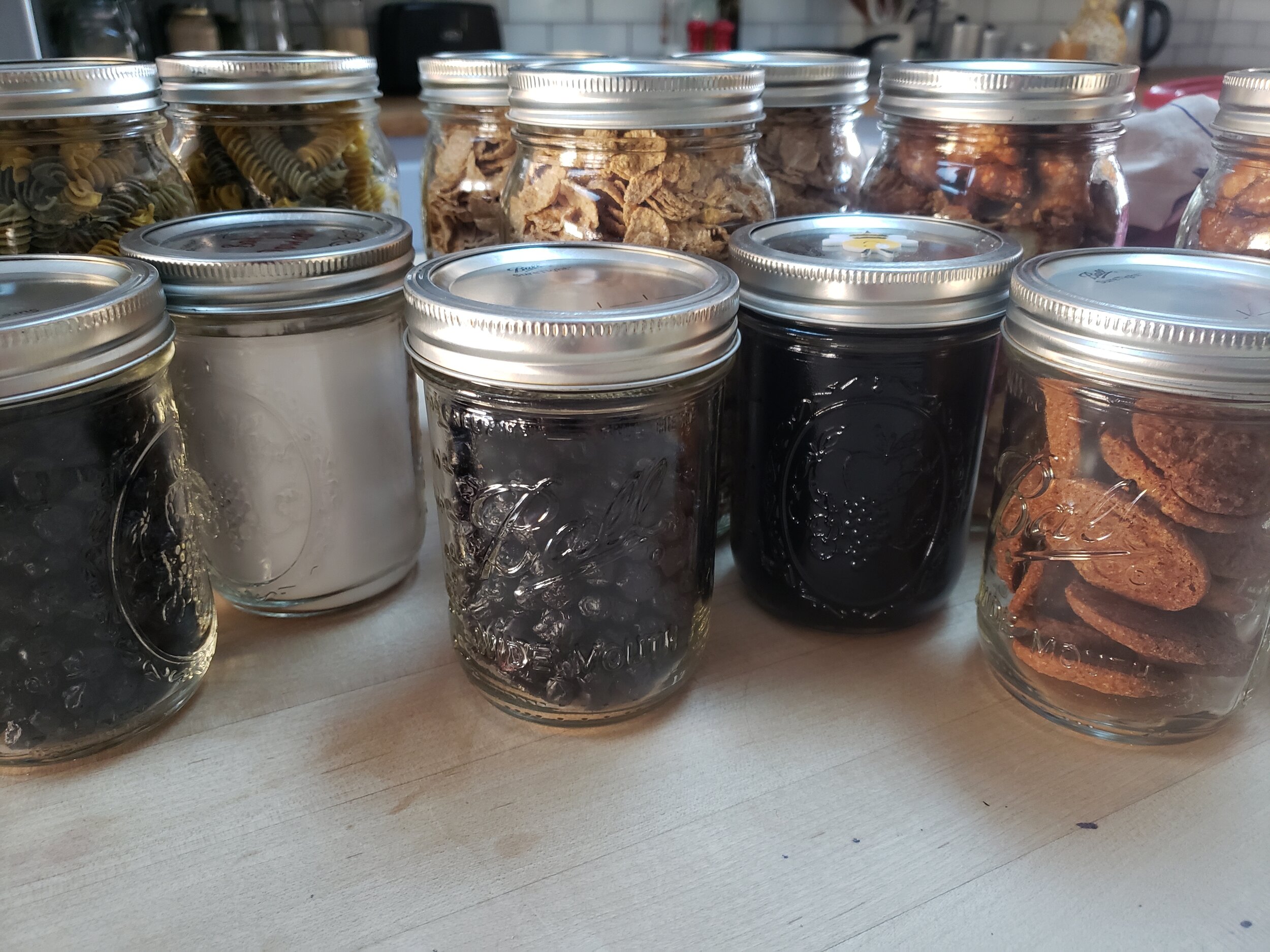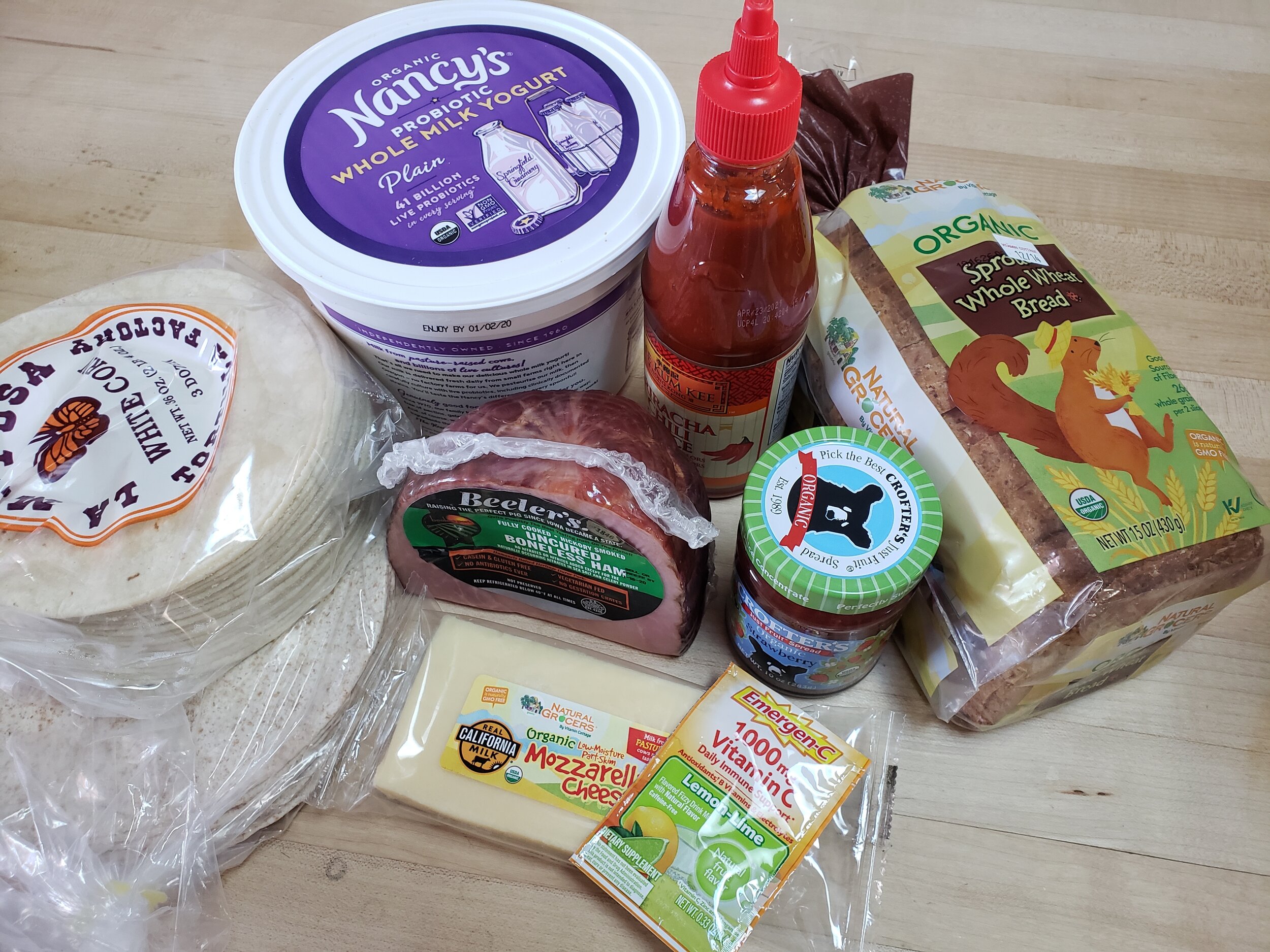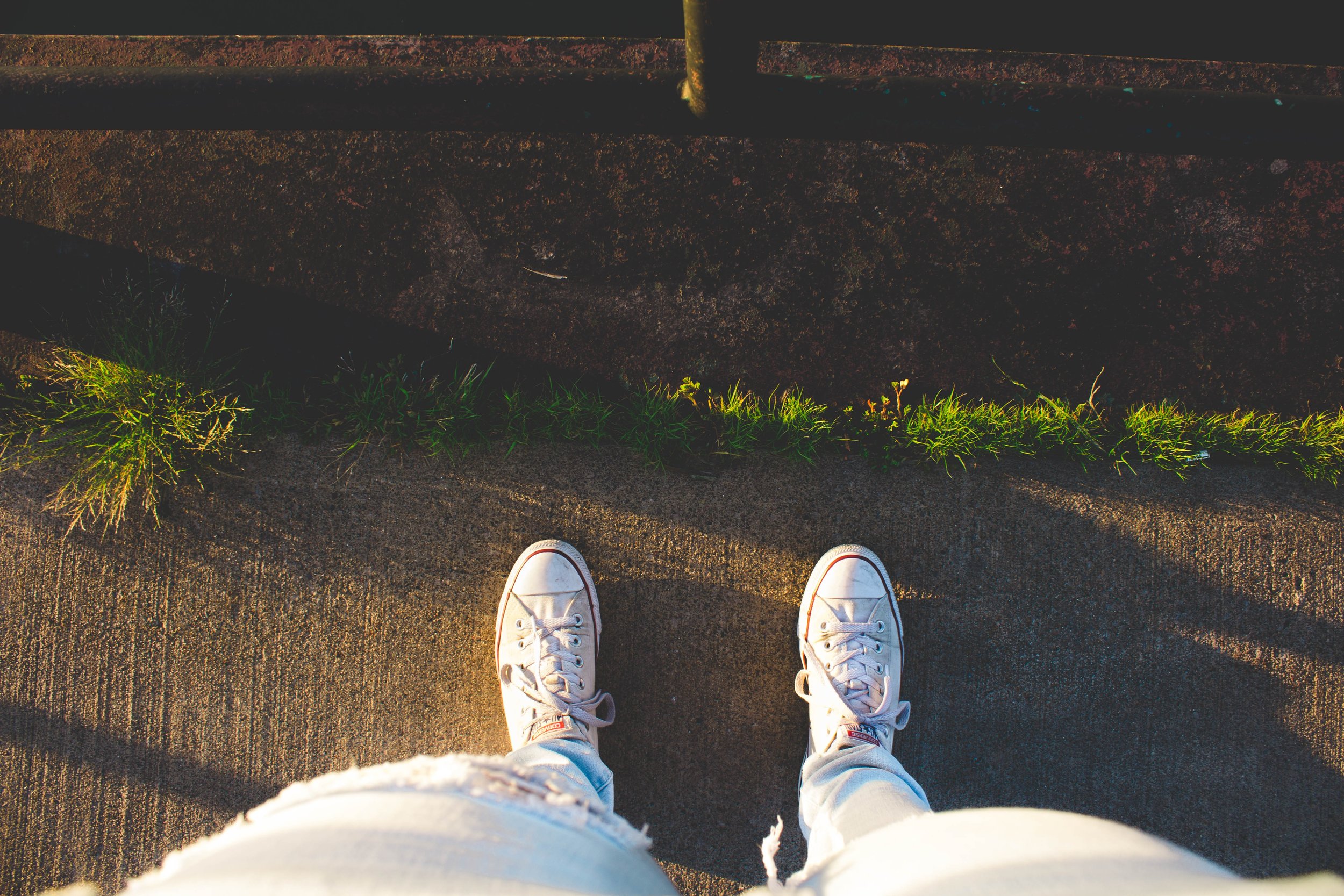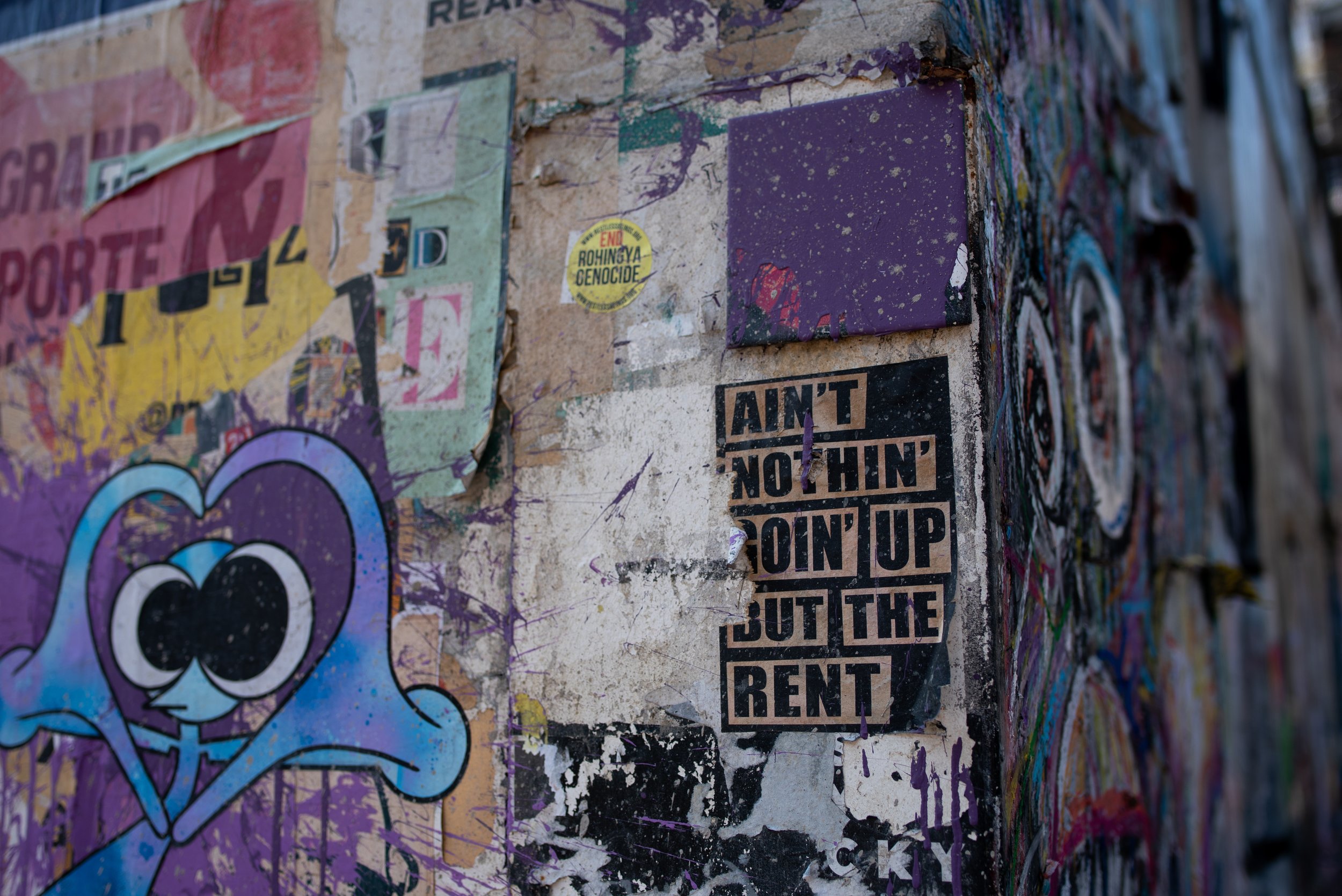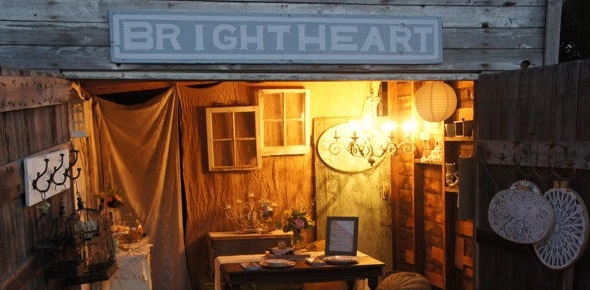I’ve been pursuing a zero-waste lifestyle for about two months, following Zero-Waste Home as a guide. Okay, so I’m a little obsessed, but dang! Bea Johnson is hard core. Seriously, think about no longer having any trash cans at your house. I tried a simple experiment, and left the kitchen trash can outside for an evening while I made dinner. I quickly realized how often I open the under sink cabinet to throw something away—but I was surprised how throwing something away is so automatic, it’s actually a mindless habit. Within the span of just a few hours of starting my own experiment, I continued to open the cabinet to try and throw something away repeatedly, only to see the trash can was not in it’s usual spot, and remember I had purposefully left it outside. Once I started paying attention to what I’m throwing away, my awareness shifted, and my creativity started kicking in. How can I reduce what comes into my house, and thereby limit what goes out?
To reduce what comes into the house, I buy less. It seems like I would therefore feel a tendency to hoard what I already have, knowing that it won’t be replaced—however the opposite is taking place. In order to have a very clear understanding of what it is I really do need to shop for, I am stripping my belongings down to the basics. My kitchen cabinets and refrigerator, my wardrobe, my living room, and office space. I’m peeling back the layers of excess that I’ve accumulated over the years, in order to see what it is I really need, and want in my home. It’s a transformative process, both internally and externally. Internally, it’s challenging to let go of things that ‘could possibly come in handy someday’. Then, I let go, and realize everything is okay, I actually feel better, lighter. Externally, my spaces around the house are opening up, clearing out and becoming easier to see, and easier to clean. I fill a box to donate, only to find there is still more stuff piling up on my desk, or kitchen table—like more things are just coming out of the woodwork. There is surely no shortage of “stuff” around, just look at the donation centers. Their drop off areas outside are almost as cramped as their shelving inside. There is no need for me to hoard my belongings in a society that is full of stuff. I’m letting go, to buy less. Seemingly counterintuitive, but stripping down to the essentials is showing me what I actually need, and the many things I don’t.
When limiting what goes out of the house, I’m taking recycling into consideration. I’m recycling less, which is a good thing. Recycling is a great option, but only for things that I can’t refuse, reduce, or re-use. It takes energy, time and resources to recycle, and it really doesn’t reduce demand for plastic. Plastic doesn’t get recycled, it gets downcycled. The quality and functionality of the plastic decreases, so that it can only be used to make a different type of product. For example, plastic bottles can’t be recycled to make new plastic bottles; that plastic is used for less structurally sound products, like fleece, carpeting, bedding, or plastic lumber. Brand new plastic must be manufactured for each plastic bottle purchased, and eventually, it will make its way to the landfill. The only way to reduce the demand for plastic, is to stop purchasing it, and for me, the quickest way to stop purchasing plastic is by changing the way I grocery shop.
Changing grocery shopping habits feels like wearing my shoes on the opposite feet, it’s awkward. I started off fumbling—figuring out bags, and jars, wax pencils, tare weights, labeling, and asking folks behind the counter to “put it in my jar” vs. in their single use packaging. My giant jar for coffee didn’t fit under the grinder correctly and grounds started pouring out on the floor. I somehow could not clearly communicate what I wanted to the woman behind the cheese counter, and felt like a fool. The man at the deli looked at my container with disgust as if I was contaminating his entire department. But then the cashier commented, “Wow, I would love to see your house some day, because based on your shopping bags, I bet it’s really cool”. I smiled proudly, and said, “Yes, it is! Thank you!” After two months, I am figuring out my process, what works and what doesn’t. It’s getting easier. I’m familiar with what’s available without packaging, and learning to make due with what’s not. By limiting my products to what I can purchase without packaging, I’m streamlining my ingredients and starting to curate a capsule kitchen, which cleans all packaging out of my cabinets, and replaces them with more appealing glass jars. My ingredients have become visible—looking clean and clear in a glass jar versus hidden inside a box or a plastic bag. It feels like I’m getting down to the root of our food…it’s core. Just like a capsule wardrobe helps to simplify decision making in the closet, so too does a capsule kitchen at dinner time. It has sparked creativity. I can limit my herbs and spices to what I use most. I can make yogurt easily. I’m learning to recognize price per weight versus price per package, which helps me to better calculate costs. I’m seeing how bulk shopping saves money.
The other area of the home that I’m simplifying is the bathroom. I’m reducing my beauty products, realizing I had developed beliefs that ended up crowding my cabinets, wasting my money, and generating a bunch of plastic packaging that’s even more difficult to recycle than food packaging. I don’t need a special soap or lotion for my face; I can use the same product I use on the rest of my body. I’ve stopped cruising by the sale section in the back of the grocery store looking for ‘good deals’—because that habit resulted in a stockpile of random beauty products that I don’t need—so in reality, I wasn’t saving money at all. Bea Johnson has some really good ideas for a simplified beauty routine that I am looking forward to testing out once I finally get through this stash of products I’ve accumulated from the discount rack.
Another experiment is the compost pile. I love this quote from Bette Midler:
“My whole life has been spent waiting for an epiphany, a manifestation of God’s presence, the kind of transcendent, magical experience that lets you see your place in the big picture. And that is what I had with my first compost heap.”
I have yet to see God appear in our backyard heap, but I’m starting to test the limits of what I can put in there, and expect to decompose within a year. We are seeing so many “compostable” goods on the market, but it’s important to remember that many of these items, like bioplastic cups and utensils, will only break down in a commercial compost heap where the temperature and moisture levels are carefully monitored and adjusted. These goods will typically not decompose in backyard compost, not in the landfill, and not with your recyclables. Unless you have access to curbside composting, or are planning on dropping these items off at a commercial compost site (Longmont/Boulder), these compostables have nowhere to go, but in with the trash. I have been testing out a backyard compostable diaper, called DYPER – it’s made from “responsibly sourced” bamboo. Nitrogen rich urine is a compost stimulant. The poopy diapers go in the trash, but just to make sure we’re sanitary, and because backyard compost does not get hot enough to kill bacteria, this compost will be used for trees, shrubs and flowers—not for the veggie garden. I am pretty laissez-faire when it comes to our compost heap, so I’m interested to see how long it will take for these bamboo diapers to decompose…time will tell.
Trying to live a zero-waste lifestyle is changing me. I’m shopping differently. I’m cooking differently. I’m thinking differently. So, where is this going? My eyes are opening, and I’m realizing that living a zero-waste lifestyle goes against the grain of how we’ve been groomed to shop. I liken it to swimming along downstream, and then climbing out of the river and realizing, “hey—what’s going on? This isn’t getting me where I want to go, I’m going to do this differently.” I like bucking a system that makes no sense. It feels counter-culture, even though it’s so basic, and more similar to how our parents grew up, than any new trend. Funny that my mom knows vinegar and baking soda are the best cleaning agents around, but replacing superfluous products under my sink with them makes me feel like a revolutionary; like I’m liberating myself from all the commercials, product placement, and marketing schemes that have been pushed in my face for years. It’s forcing me to be creative, in order to live simply.










